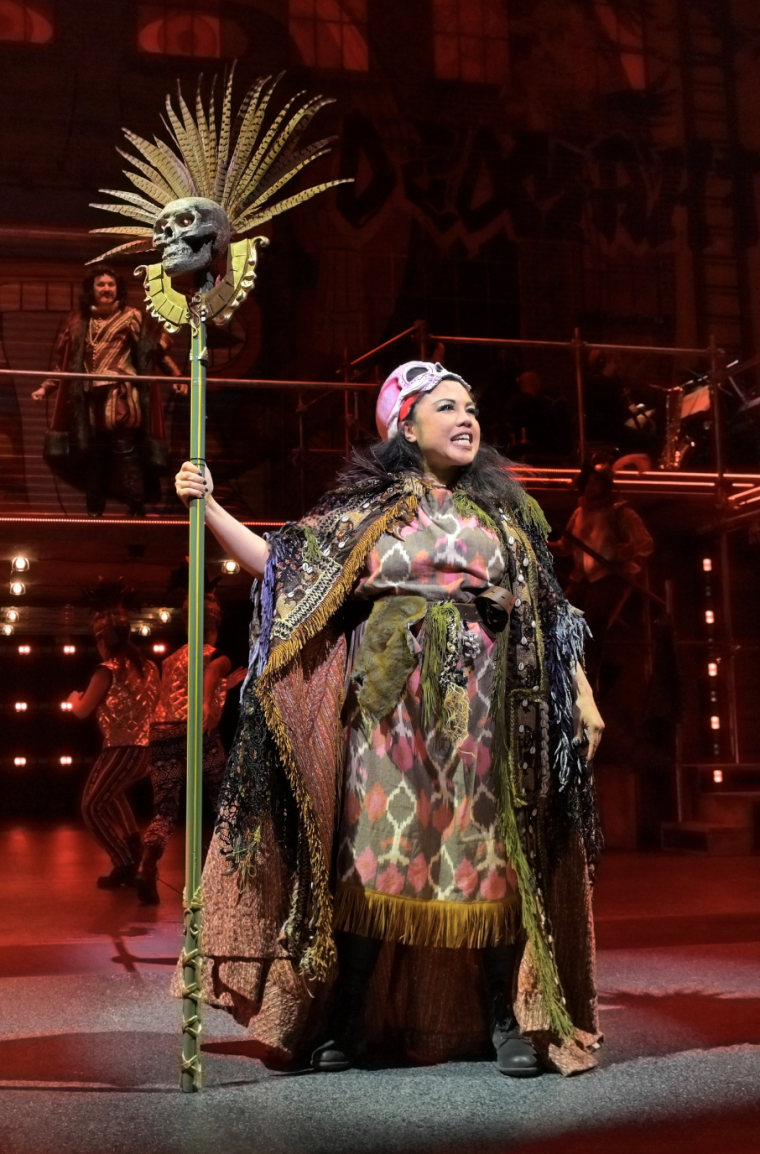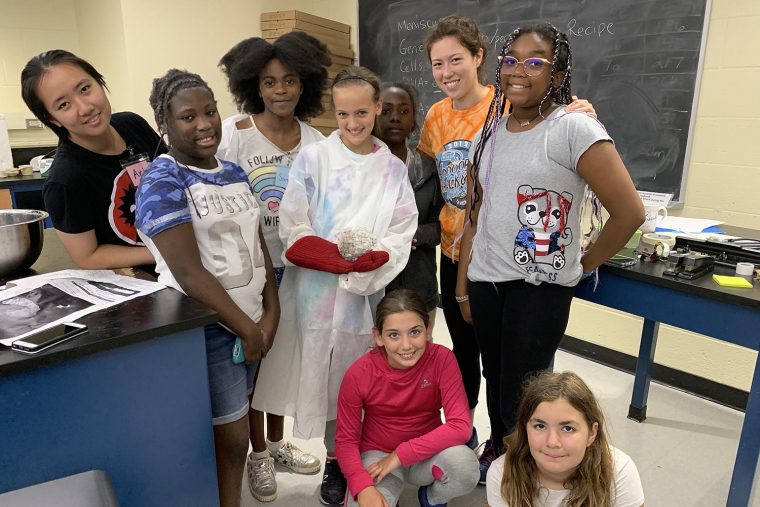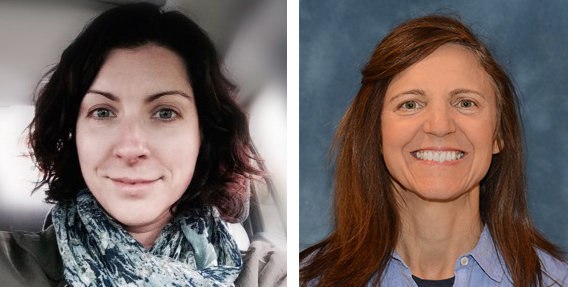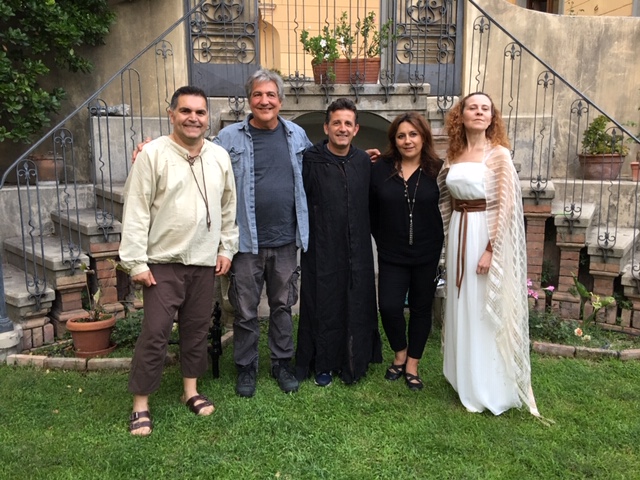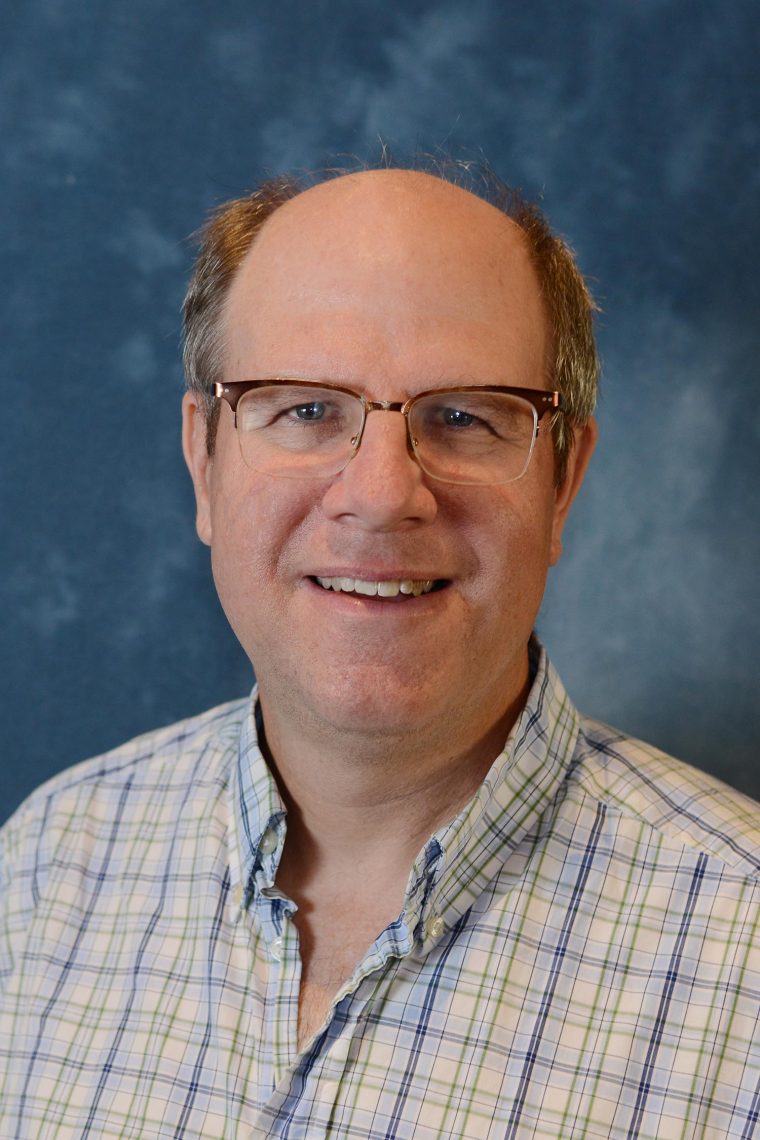This summer, award-winning actor, singer, producer, and new assistant professor of theater Maria-Christina Oliveras acted in the world premiere of Kiss My Aztec, a new musical on Latino history. Written by John Leguizamo and Tony Taccone, winners of the 2018 Special Tony Award for Latin History of Morons, the musical debuted May through July at the Berkeley Repertory Theatre. Performances will continue at La Jolla Playhouse starting Sept. 8. Oliveras became involved in the musical's developmental process in 2014, when it started out as a play and evolved over time. "I am a new works junkie. There is nothing like 'brain-childing' a piece…
This year's Shasha Seminar for Human Concerns, “Understanding Russia: A Dramatic Return to the World Stage,” will be held Oct. 11–12. It begins on Friday with a keynote address by Andrew Meier ’85, a former Moscow correspondent with Time. On Saturday, a full day of panel discussions led by Wesleyan professors and alumni who are leaders in their field will be available to registrants. The Shasha Seminar, an educational forum for Wesleyan alumni, parents, and friends, explores issues of global concern in a small seminar environment. Endowed by James Shasha ’50, P’82, the Shasha Seminar for Human Concerns supports lifelong learning and encourages…
(Story by Kerisha Harris) For the sixth year in a row, the weeklong Wesleyan Girls in Science Summer Camp welcomed dozens of middle school-aged girls for a week of learning, exploration, and STEM-centered fun. From Aug. 5-9 inside Exley Science Center, the 32 campers in grades 4-6 spent the week learning about everything from how to extract DNA from a strawberry, to the parts of the brain, and even how to make (but don’t touch) an ice-cold comet. By Friday, the young scientists were excited to share all they had learned with their friends and families, and did so through a poster presentation and…
In this recurring feature in The Wesleyan Connection, we highlight some of the latest news stories about Wesleyan and our alumni. Wesleyan in the News The Hill: "Advice on Climate Policy for the 2020 Presidential Candidates" In this op-ed, Huffington Foundation Professor of Economics and Environmental Studies, Emeritus Gary Yohe and his coauthors write that they are encouraged by the "unprecedented attention being given to climate change among those vying for the 2020 Democratic presidential nomination" and offer words of advice for creating an ambitious but credible climate policy. 2. AINT — BAD: "Isabella Convertino" The photography of Isabella Convertino '20…
Hilary Barth and Andrea Patalano, both professors of psychology, have received a major grant from the National Science Foundation (NSF) to support collaborative research on numerical cognition. The three-year $1,091,303 grant, which is funded by NSF’s EHR Core Research program focused on STEM learning, includes support for Wesleyan student participation in the proposed research project, which will involve experimental studies of children’s and adults’ understanding of, and judgments about, number and quantity. The two labs collaborate frequently, and have been working jointly on another project for the past three years supported by an earlier NSF grant. The new project is distinct,…
Ron Jenkins, professor and chair of theater, is the author of a new book titled Resurrection of the Saints: Sacred Tragi-Comedy in Venafro published by Bulzoni in July 2019 as part of the company's international series on “Theater and Memory.” The volume is in dual languages; the first part is in Italian, the second translated into English. Resurrection of the Saints is an analysis of a 200-year-old theatrical tradition in the Italian village of Venafro, where the citizens still perform an 18th-century play that recounts the martyrdom of their patron saints in the third century. In 1792, Giuseppe Macchia wrote the play, “Religion…
Wesleyan faculty frequently publish articles based on their scholarship in The Conversation US, a nonprofit news organization with the tagline, “Academic rigor, journalistic flair.” In a new article, Assistant Professor of Government Ioana Emy Matesan and Ronit Berger of Interdisciplinary Center Herzliya write about their research trying to understand when and why armed groups apologize for their mistakes. They hope this research will help to find ways to negotiate resolutions during conflicts. Why Do Rebel Groups Apologize? Armed groups often rely on violence and instilling fear to show strength and resilience. And yet, every so often, they are willing to apologize when…
In this recurring feature in The Wesleyan Connection, we highlight some of the latest news stories about Wesleyan and our alumni. Wesleyan in the News 1. The Morning Call: "Allen Student Wins 'Hamilton' Scholarship, Congrats from Lin-Manuel Miranda" Anna Tjeltveit of Allentown, Penn., winner of the 2019 Wesleyan University Hamilton Prize for Creativity, is profiled. She shares how her winning submission, a one-act play titled, "Five Steps," came together at the last minute, and discusses her early career in theater as well as her plans for her time at Wesleyan. 2. WJLA: "Arlington Teen Wins ‘Hamilton’ Prize Gets a Shout Out from Lin-Manuel Miranda" Cole…
In recognition of their career achievements, the following faculty members are being appointed to endowed professorships, effective July 1, 2019: Frederick Cohan, professor of biology, is receiving the Huffington Foundation Professorship in the College of the Environment, established in 2010. Susanne Fusso, professor of Russian, East European, and Eurasian studies, is receiving the Marcus L. Taft Professorship of Modern Languages, established in 1880. William Johnston, professor of history, is receiving a John E. Andrus Professorship of History, established in 1981. Ethan Kleinberg, professor of history and professor of letters, is receiving the Class of 1958 Distinguished Professorship, established in 2008. Tsampikos…
Norman Shapiro, Distinguished Professor of Literary Translation and Poet in Residence, is the translator of Pierre Coran's book, RhymAmusings, published by Black Widow Press in 2019. "These 78 amusing rhyme-vignettes by preeminent Belgian children's poet and novelist Pierre Coran speak with an adult sophistication and endearing grace to the ‘child in all of us,’" Shapiro wrote about the book. Among the poems are "Six Hundred Six Sour Cherries," "The Little Goldfish," "Why Do Potatoes Have Eyes," "Scat, Cats," "The Whale in My Hat," and "The Flea and the Elephant." Publication of the book was aided by a grant from the…
Wesleyan faculty frequently publish articles based on their scholarship in The Conversation US, a nonprofit news organization with the tagline, “Academic rigor, journalistic flair.” In a new article, Professor of Religion Peter Gottschalk writes about the history of anti-Jewish and anti-Muslim movements in the U.S., and the confluence of the two. Hate crimes associated with both Islamophobia and anti-Semitism have a long history in America's past Congresswoman Ilhan Omar tweeted recently that “Islamophobia and anti-Semitism are two sides of the same bigoted coin.” Her comments came in response to media reports that the suspect behind the shooting at a San Diego synagogue…
Wesleyan faculty frequently publish articles based on their scholarship in The Conversation US, a nonprofit news organization with the tagline, “Academic rigor, journalistic flair.” In a new article, Professor and Chair of Economics Richard Grossman analyzes the latest jobs report. May jobs report suggests a slowing economy – and possibly an imminent interest rate cut The latest jobs data suggests an interest rate cut may be imminent. The Labor Department reported on June 7 that U.S. nonfarm payroll employment increased by 75,000 in May, while the unemployment rate remained unchanged at 3.6%. This level of job creation was well below economists’ forecasts…


